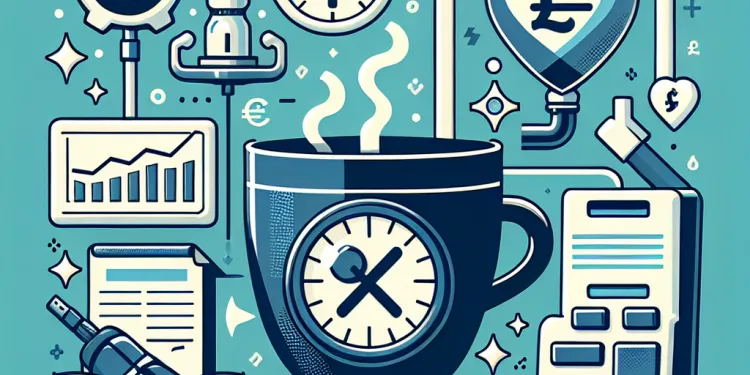
Find Help
More Items From Ergsy search
-
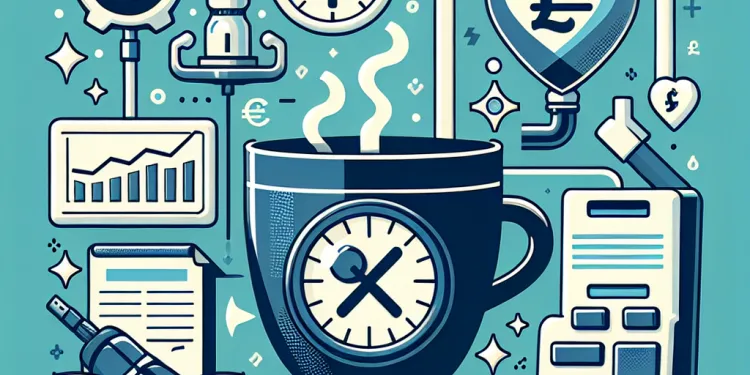
Can decaffeinated coffee affect blood pressure?
Relevance: 100%
-
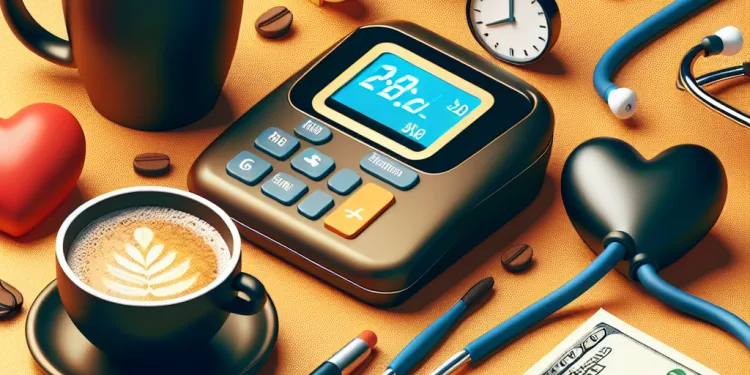
Should people with high blood pressure avoid coffee entirely?
Relevance: 69%
-
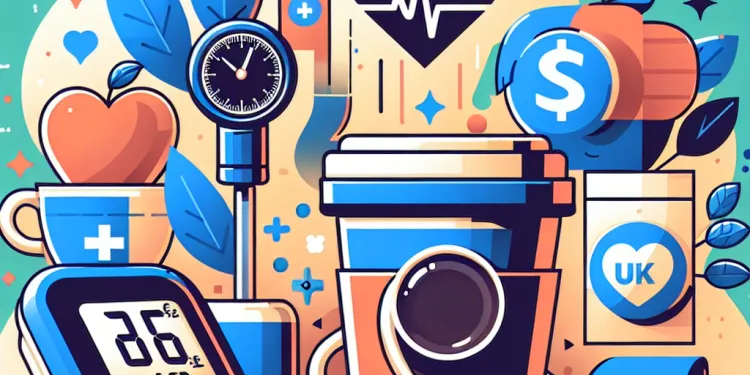
How can one minimize the impact of coffee on blood pressure?
Relevance: 66%
-

Is Your Morning Coffee a Risk Factor for High Blood Pressure?
Relevance: 64%
-
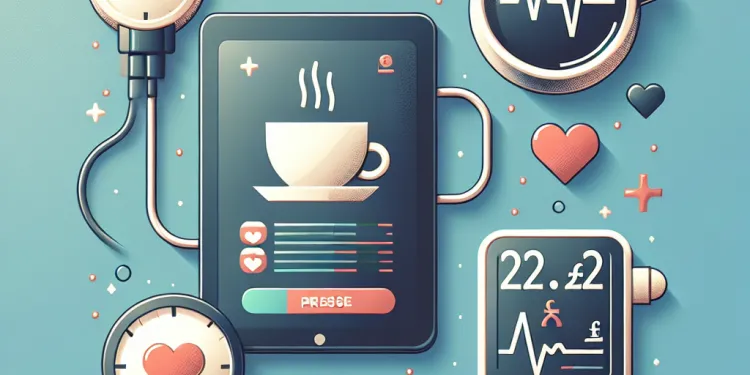
Are there any other factors in coffee that may affect blood pressure?
Relevance: 64%
-
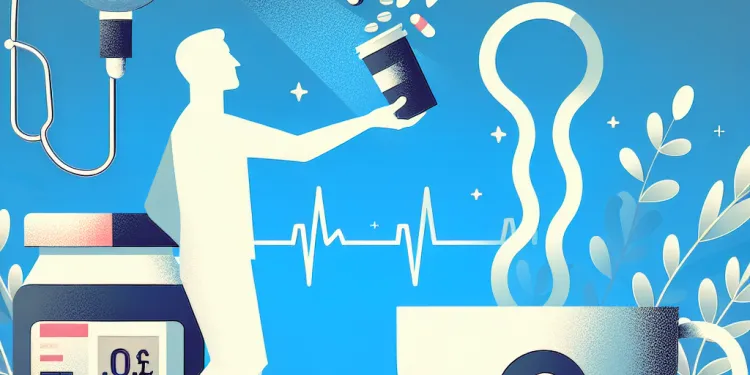
Is it safe to take blood pressure medication with coffee?
Relevance: 62%
-
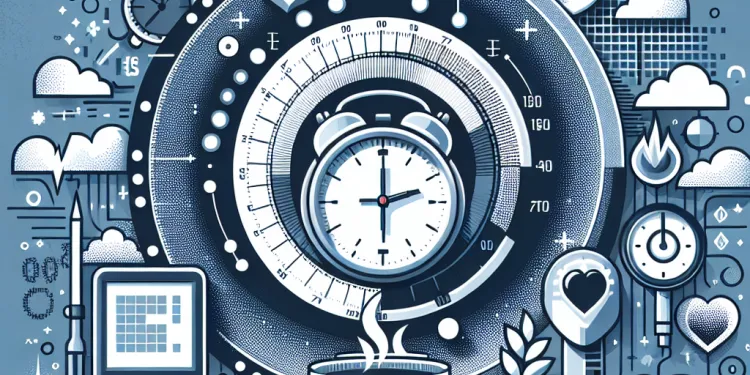
Is there a specific time of day when coffee has the most impact on blood pressure?
Relevance: 60%
-
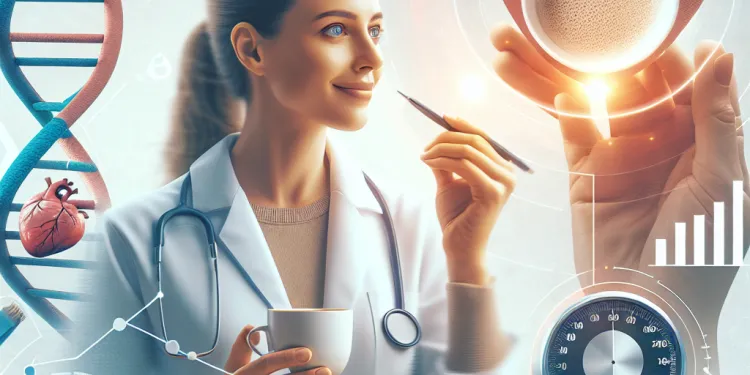
Does genetic makeup affect how coffee impacts blood pressure?
Relevance: 60%
-
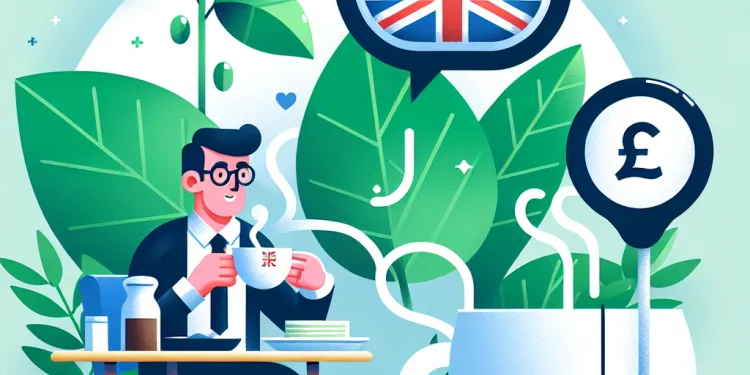
Is green tea a better alternative to coffee for blood pressure management?
Relevance: 60%
-
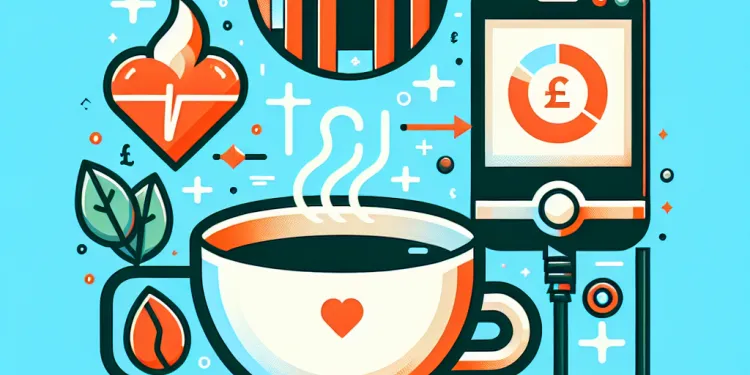
How soon after drinking coffee can blood pressure be affected?
Relevance: 59%
-
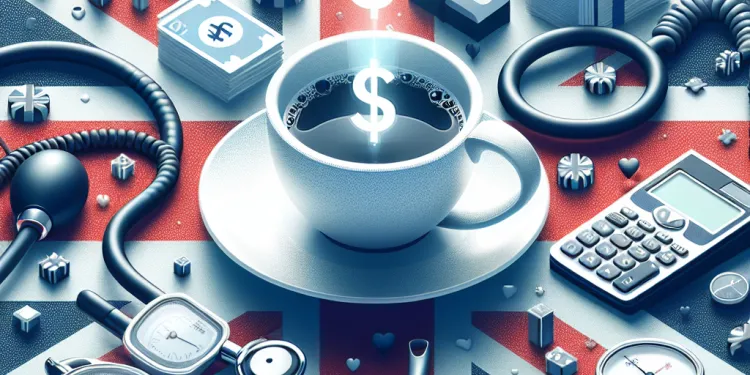
Does caffeine affect blood pressure?
Relevance: 57%
-
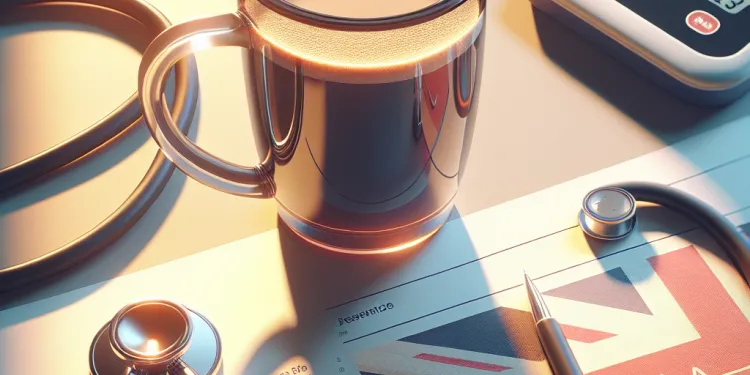
Does drinking coffee every morning increase the risk of developing high blood pressure?
Relevance: 54%
-
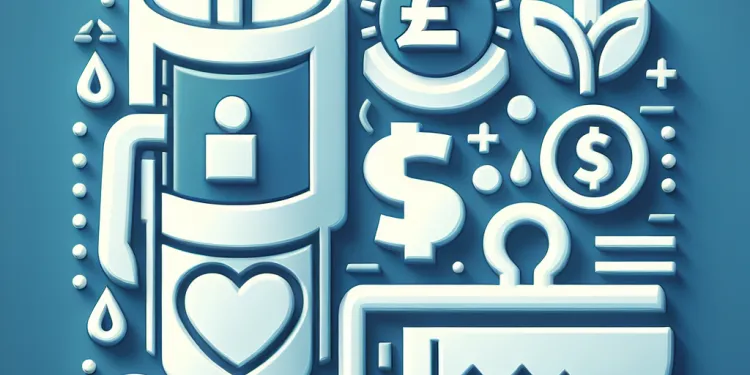
How much caffeine is generally considered safe for people with high blood pressure?
Relevance: 50%
-
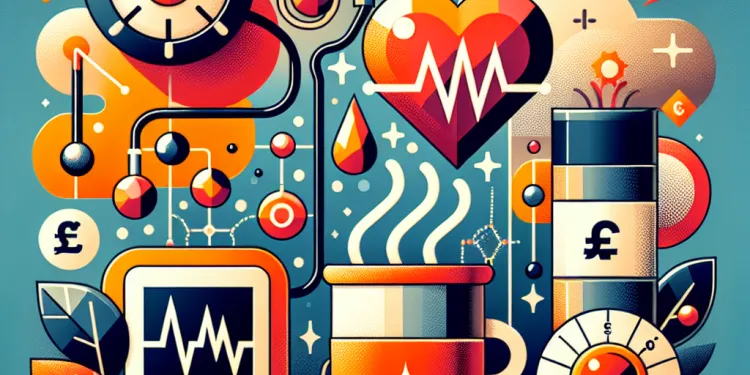
How does caffeine affect blood pressure?
Relevance: 49%
-
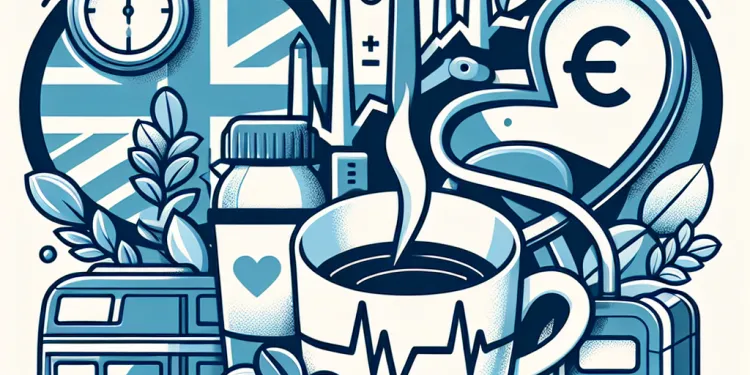
What is the recommended number of coffee cups per day for hypertensive individuals?
Relevance: 46%
-
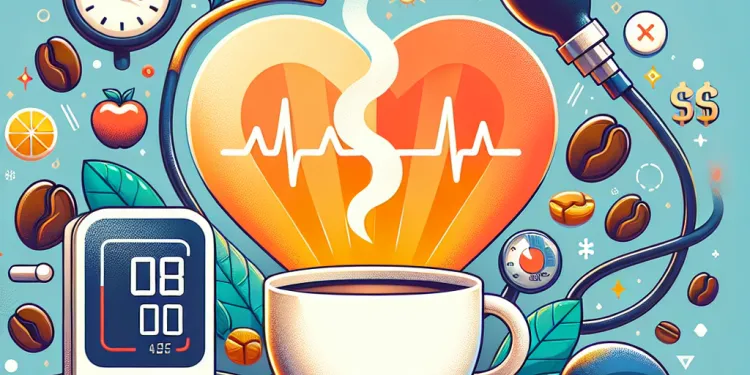
What is the link between coffee consumption and high blood pressure?
Relevance: 42%
-
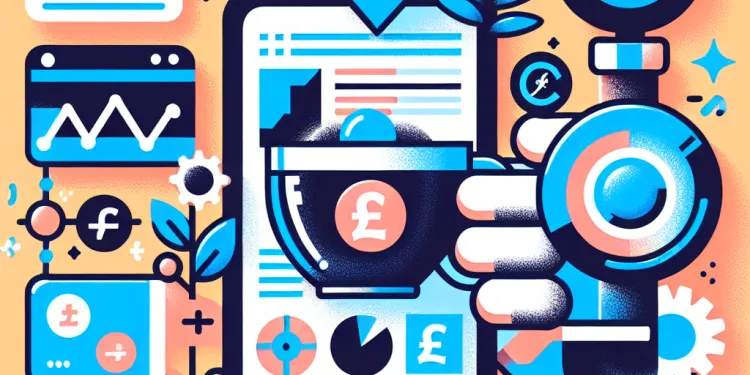
How does regular caffeine consumption impact tolerance and blood pressure?
Relevance: 42%
-
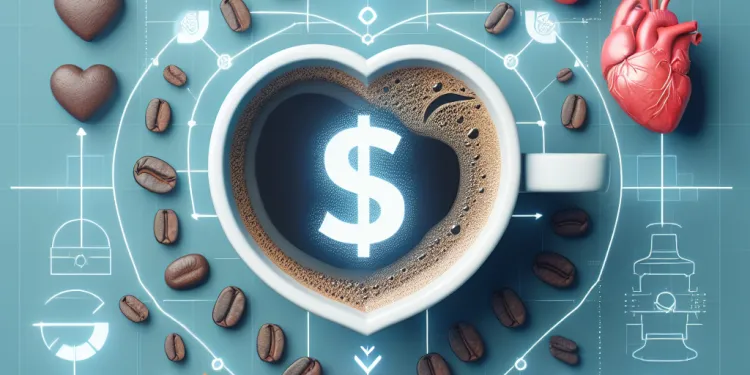
Does coffee consumption have any long-term heart health effects?
Relevance: 40%
-
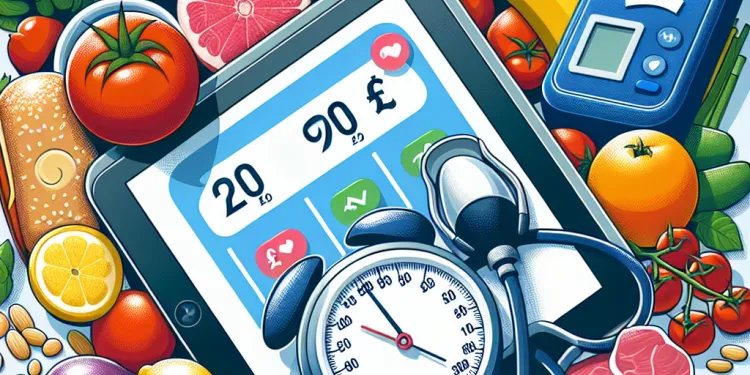
How does diet affect blood pressure?
Relevance: 38%
-
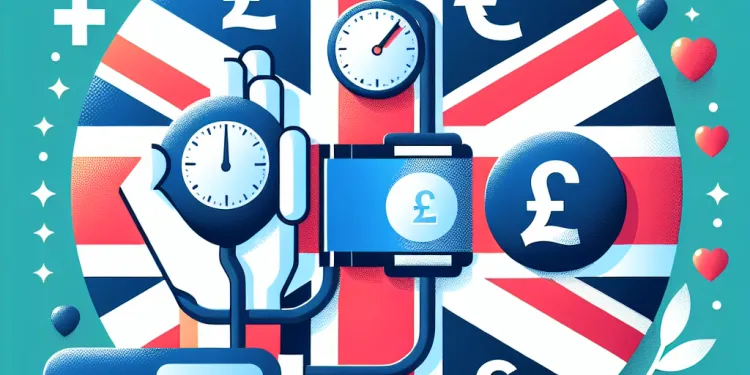
What is high blood pressure?
Relevance: 38%
-
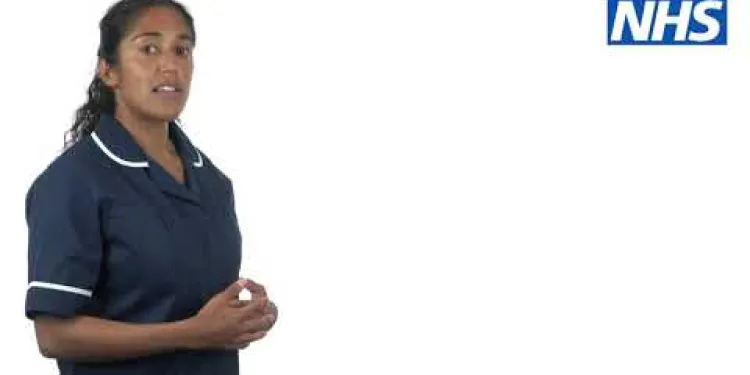
Seven Reaasons For Measuring blood pressure
Relevance: 36%
-
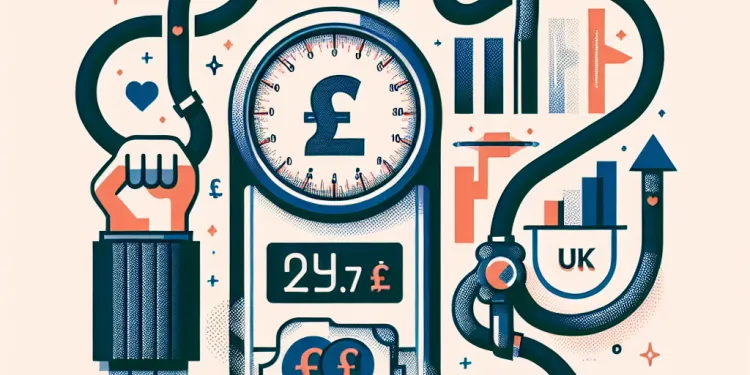
How is high blood pressure diagnosed?
Relevance: 36%
-
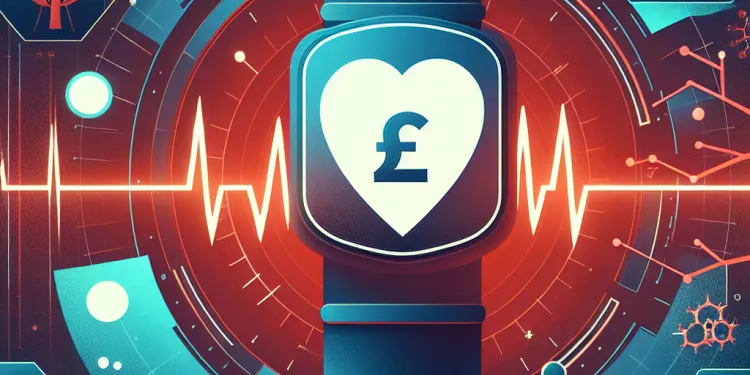
What causes high blood pressure?
Relevance: 36%
-
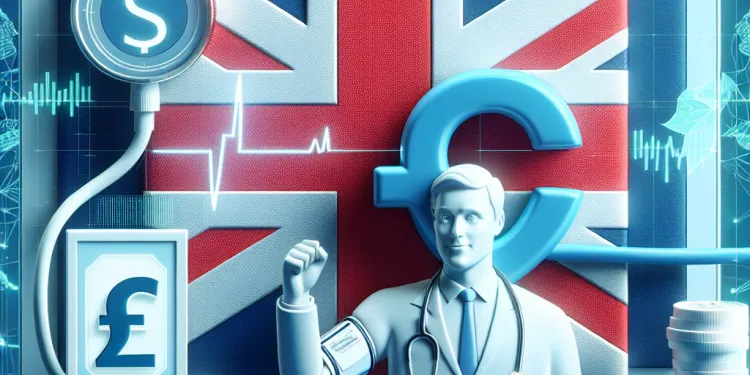
Can high blood pressure be prevented?
Relevance: 36%
-
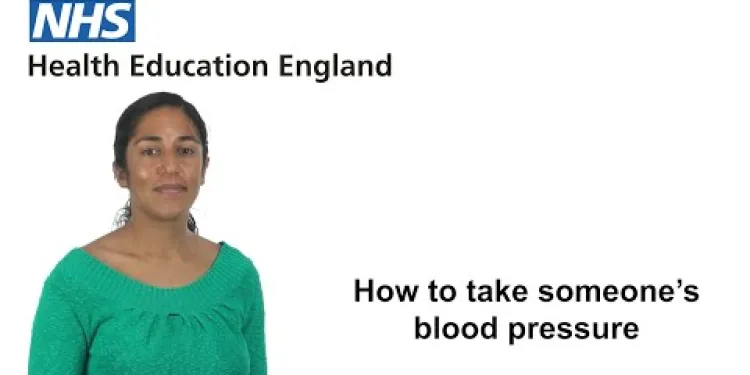
How to take someone's blood pressure
Relevance: 35%
-
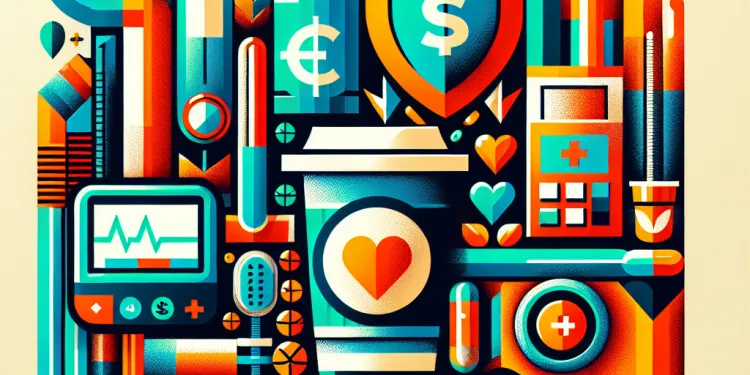
What are the symptoms of caffeine-induced high blood pressure?
Relevance: 35%
-
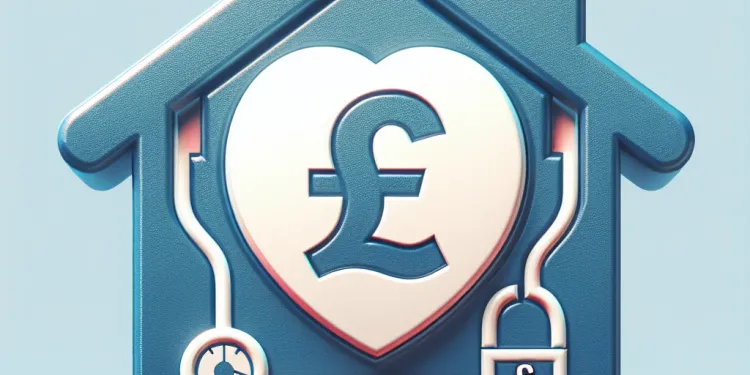
What are the risks of having high blood pressure?
Relevance: 34%
-

Can stress cause high blood pressure?
Relevance: 34%
-
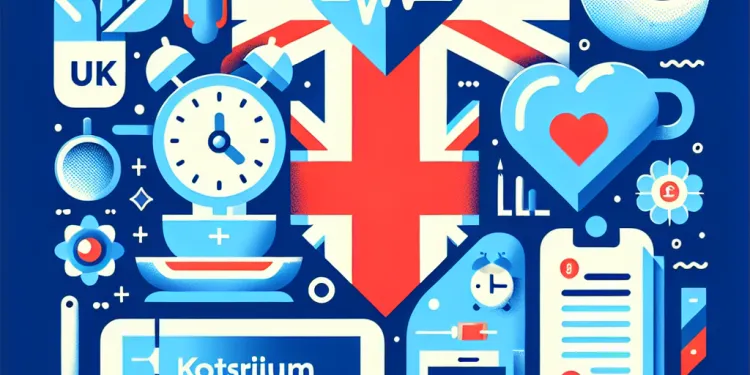
What is the role of potassium in managing blood pressure?
Relevance: 34%
-
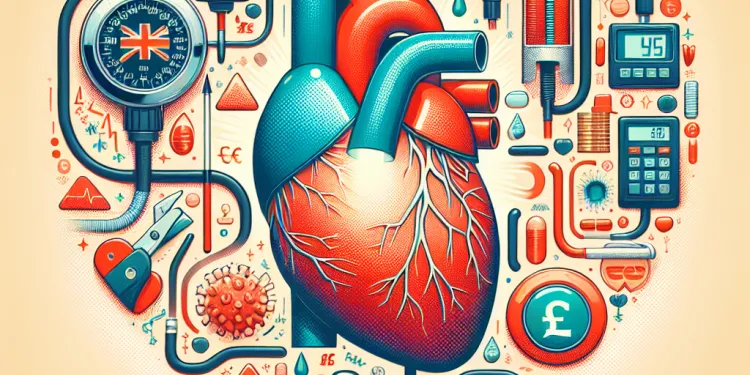
How can high blood pressure be treated?
Relevance: 34%
-
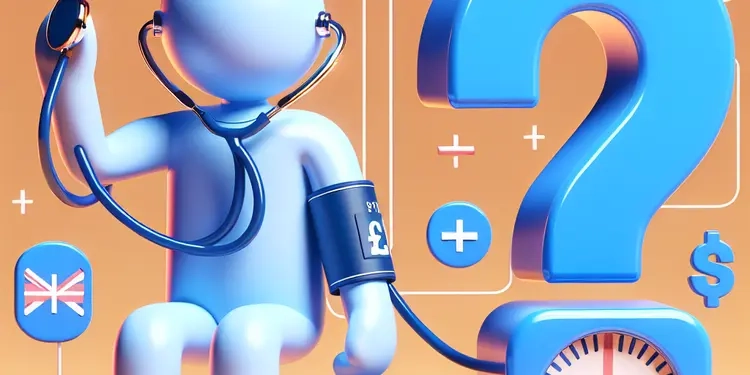
Should I test my child for high blood pressure?
Relevance: 34%
-
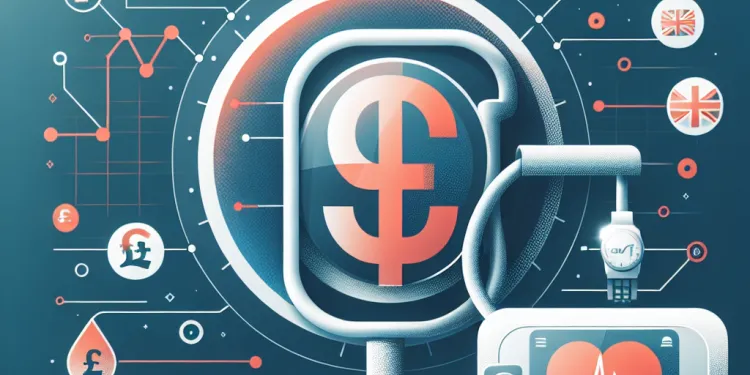
How often should I check my blood pressure?
Relevance: 34%
-
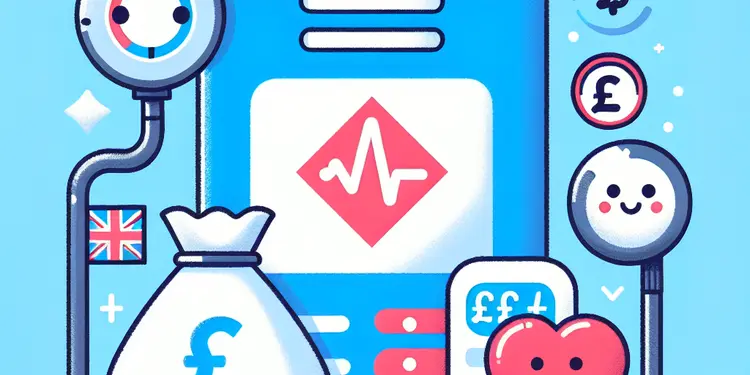
How does salt impact blood pressure?
Relevance: 34%
-
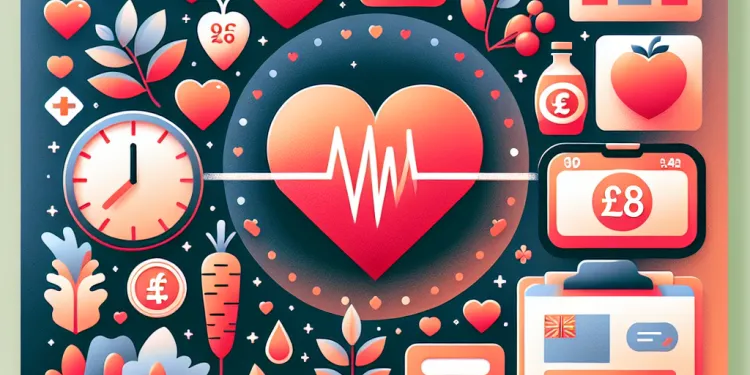
What lifestyle changes can lower blood pressure?
Relevance: 33%
-
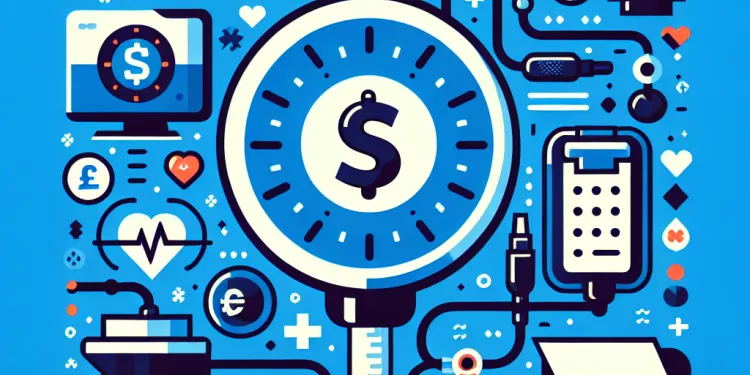
How do medications help control high blood pressure?
Relevance: 33%
-
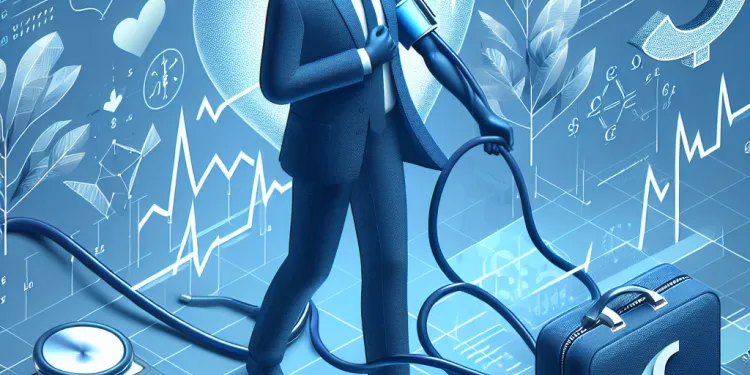
Why is high blood pressure called a 'silent killer'?
Relevance: 33%
-
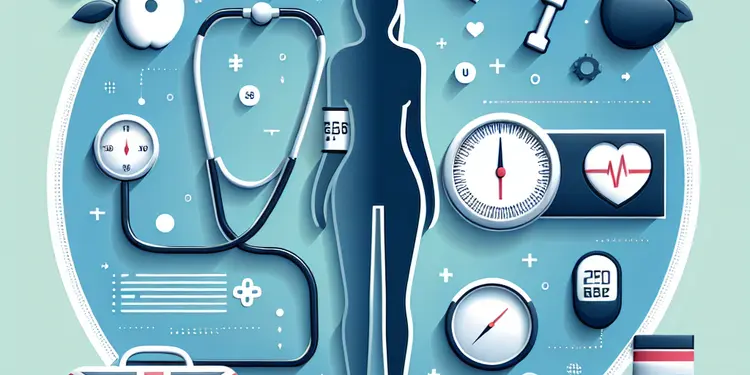
Can weight loss drugs affect blood pressure?
Relevance: 33%
-
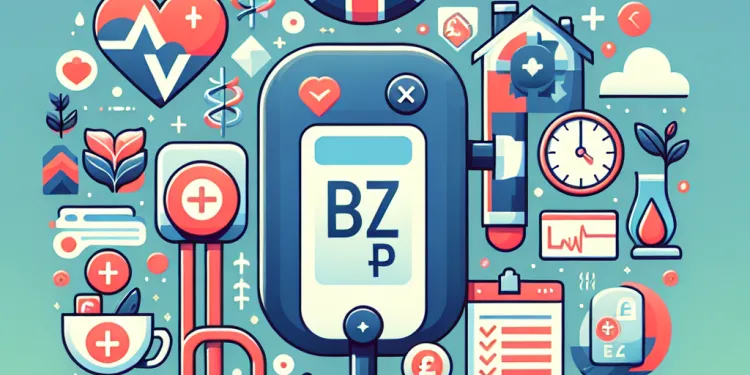
Can high blood pressure lead to other health problems?
Relevance: 32%
-
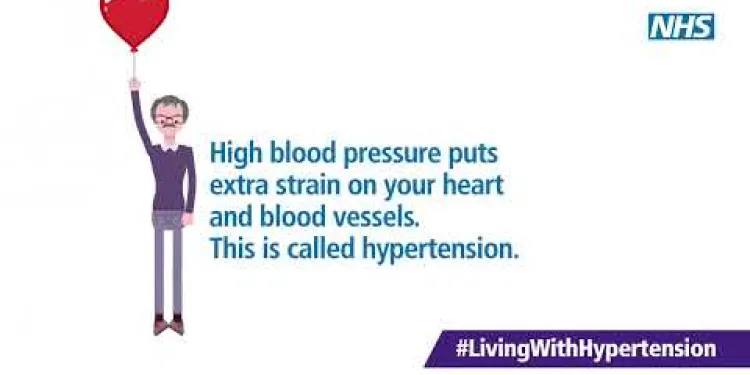
Blood pressure too high? Living with hypertension animation
Relevance: 32%
-
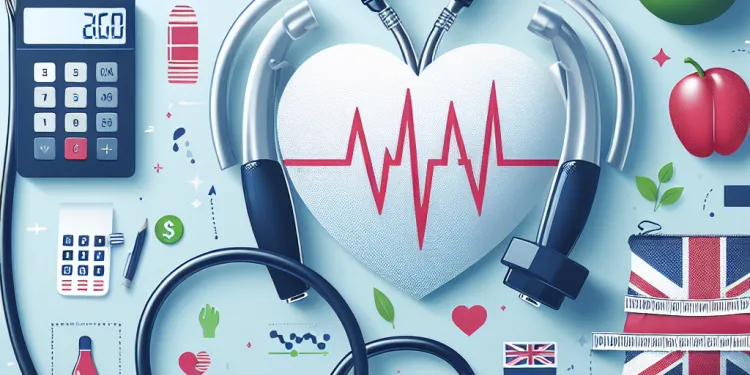
Can weight loss help reduce high blood pressure?
Relevance: 32%
Understanding Decaffeinated Coffee
Decaffeinated coffee, often referred to simply as "decaf," is coffee that has had most of its caffeine content removed. Many coffee drinkers choose decaf as a way to enjoy the flavor and warmth of coffee without the stimulating effects of caffeine. In the UK, where tea and coffee consumption is a beloved tradition, decaf options provide an alternative for those sensitive to caffeine or seeking to reduce their caffeine intake for health reasons.
How Decaffeinated Coffee is Made
Several methods are used to remove caffeine from coffee beans, including the Swiss Water Process, the use of organic solvents, and carbon dioxide extraction. While the caffeine content is significantly reduced, trace amounts typically remain. Nonetheless, the taste and aroma are largely preserved, giving coffee lovers a choice other than completely abstaining from their favourite beverage.
Decaffeinated Coffee and Blood Pressure
One of the chief concerns among coffee drinkers, especially those with hypertension, is the impact of coffee on blood pressure. Caffeine is a known stimulant that can cause a temporary rise in blood pressure, which is why some individuals with hypertension are advised to limit their intake. However, since decaffeinated coffee contains little to no caffeine, its effect on blood pressure is generally considered to be negligible.
Some studies suggest that decaf coffee may have a mild impact on blood pressure, independent of its caffeine content. This could be due to other bioactive compounds in coffee, such as chlorogenic acids, which are also present in decaf versions. These compounds have been studied for both positive and negative impacts on cardiovascular health.
The Impact of Decaf Coffee on Individuals with Hypertension
For individuals with high blood pressure, drinking decaf coffee is often seen as a safer choice. Research indicates that any effects on blood pressure from decaf are minimal compared to regular coffee. However, each individual's response may vary. As such, those with hypertension are encouraged to monitor their blood pressure and consult healthcare professionals when making dietary changes.
General Health Considerations
Aside from concerns related to blood pressure, decaf coffee has been studied for its overall health benefits. It contains antioxidants, which are known to fight free radicals in the body and may lower the risk of certain diseases. Decaf coffee shares many of these benefits with its caffeinated counterpart, offering a way to receive coffee’s health benefits without caffeine-related drawbacks.
Conclusion
In conclusion, while decaffeinated coffee does remove the concern of caffeine-induced blood pressure increases, it’s important to consider individual health conditions and dietary needs. For most people, enjoying decaf coffee can be a pleasant part of their routine without significant impacts on blood pressure. However, those with pre-existing heart conditions should always seek professional advice tailored to their specific health context.
What is Decaffeinated Coffee?
Decaffeinated coffee, or "decaf," is coffee with almost no caffeine. People drink decaf to enjoy coffee's taste and warmth without caffeine's buzz. In the UK, where people love coffee and tea, decaf is a good choice for those who feel sensitive to caffeine or want less of it for health.
How is Decaffeinated Coffee Made?
There are different ways to take out caffeine from coffee beans. Some ways are called the Swiss Water Process, using organic solvents, and carbon dioxide extraction. Some caffeine is left, but the taste and smell remain. This lets coffee lovers enjoy their drink without having to give it up completely.
Decaffeinated Coffee and Blood Pressure
Many people worry about coffee raising blood pressure. Caffeine can make blood pressure go up for a while. This is why people with high blood pressure are often told to have less caffeine. Decaf coffee has little or no caffeine, so it usually doesn’t affect blood pressure much.
Some studies say decaf coffee might change blood pressure a little bit, not because of the caffeine, but due to other things in coffee like chlorogenic acids. These can be good or bad for heart health.
Decaf Coffee for People with High Blood Pressure
If someone has high blood pressure, decaf coffee might be a safer choice. Research shows decaf doesn't affect blood pressure much, unlike regular coffee. But everyone is different. People with high blood pressure should check their blood pressure often and talk to doctors before changing what they eat or drink.
Health Benefits of Decaf Coffee
Decaf coffee has been studied for its health benefits. It has antioxidants that help fight harmful things in the body and might lower the chance of certain illnesses. Decaf coffee offers these benefits without the caffeine issues.
Final Thoughts
Decaf coffee removes worries about caffeine raising blood pressure. It's important to think about personal health and diet needs. For most people, drinking decaf can be a nice part of their day without much effect on blood pressure. However, people with heart problems should always ask a doctor what is best for their health.
Frequently Asked Questions
What is decaffeinated coffee?
Decaffeinated coffee is coffee that has had most of its caffeine content removed. Typically, about 97% of the caffeine is eliminated, leaving only a small amount.
Can decaffeinated coffee affect blood pressure?
Decaffeinated coffee generally has a less significant effect on blood pressure compared to regular coffee, but individual responses can vary.
Is decaffeinated coffee completely caffeine-free?
No, decaffeinated coffee is not completely caffeine-free. It still contains a small amount of caffeine, usually about 2-3 mg per cup.
How does caffeine affect blood pressure?
Caffeine can temporarily increase blood pressure by stimulating the central nervous system and releasing certain hormones that raise blood pressure.
Are there other compounds in decaffeinated coffee that might affect blood pressure?
Yes, decaffeinated coffee still contains other compounds like antioxidants that may influence cardiovascular health, although their effect on blood pressure is not well-documented.
Is it safe to drink decaffeinated coffee if I have high blood pressure?
In general, it is considered safe for most people with high blood pressure to drink decaffeinated coffee in moderation, but it's best to consult with a healthcare provider.
Does regular coffee have a more pronounced effect on blood pressure compared to decaffeinated coffee?
Yes, regular coffee typically has a more pronounced effect on blood pressure due to its higher caffeine content.
How much decaffeinated coffee can I safely drink in a day?
Most people can safely drink several cups of decaffeinated coffee a day, but it's best to monitor how your body responds, especially if you have any health concerns.
Can switching to decaffeinated coffee lower my blood pressure?
Switching to decaffeinated coffee may help reduce the caffeine-related increase in blood pressure, but the overall impact will vary from person to person.
Are there any studies on decaffeinated coffee and blood pressure?
Some studies have examined the effects of decaffeinated coffee on blood pressure, but results can be inconsistent. Overall, it's considered to have a minimal impact compared to caffeinated coffee.
Does decaffeinated coffee have any other health effects?
Decaffeinated coffee is associated with some of the same health benefits as regular coffee, such as containing antioxidants, but without the strong stimulant effects of caffeine.
How is decaffeinated coffee made?
Decaffeinated coffee is made by removing caffeine from the coffee beans using methods such as the Swiss Water Process, direct solvent process, or CO2 process.
Can decaffeinated coffee cause side effects?
Decaffeinated coffee is generally well-tolerated, but some people might experience mild side effects like digestive issues due to other coffee compounds.
Is there a difference between decaf and regular coffee in terms of taste?
Decaffeinated coffee may taste slightly different than regular coffee due to the decaffeination process, which can affect the aroma and flavor.
Can people with caffeine sensitivity drink decaffeinated coffee safely?
People with caffeine sensitivity may tolerate decaffeinated coffee better than regular coffee, but they should be aware of the small amount of caffeine present.
Is decaffeinated coffee less acidic than regular coffee?
The acidity of decaffeinated coffee depends on the beans and processing method, but it is generally similar to that of regular coffee.
What are the benefits of drinking decaffeinated coffee?
Benefits include reducing caffeine-related health risks, enjoying the taste of coffee with less impact on sleep, and potential cardiovascular benefits from antioxidants.
Can decaffeinated coffee help with sleep?
Since it contains much less caffeine, decaffeinated coffee is less likely to affect sleep compared to regular coffee.
How does one's genetic makeup affect response to decaffeinated coffee?
Genetic variations can influence how a person metabolizes caffeine and responds to coffee, affecting their blood pressure and other responses.
Should I be concerned about the decaffeination chemicals affecting blood pressure?
Most decaffeination methods are safe, but if you're concerned about chemical residues, consider choosing coffee processed by the Swiss Water Process, which uses water rather than solvents.
What is decaffeinated coffee?
Decaffeinated coffee is coffee that has most of the caffeine taken out. Caffeine is the thing in coffee that gives people energy.
Some people like decaffeinated coffee because it doesn’t make them feel as awake. It's a good choice if you want to drink coffee but don’t want the extra buzz.
If you find it hard to read, you can:
- Ask someone to help you read.
- Use an app to read the words out loud.
- Look at pictures of coffee to understand better.
Decaf coffee is coffee with almost all the caffeine taken out. This means about 97% of the caffeine is gone, and only a little bit is left.
Can decaf coffee change blood pressure?
Decaf coffee doesn't affect blood pressure as much as regular coffee. But, different people might feel different effects.
Does decaf coffee have any caffeine in it?
Decaf coffee is coffee with most of the caffeine taken out. But it still has a little bit of caffeine in it. So, it is not completely caffeine-free.
To help you understand better, you can use picture supports or ask someone to explain it to you in simple words.
Decaffeinated coffee is not completely without caffeine. It has a little bit of caffeine, usually 2-3 mg in each cup.
What does caffeine do to your blood pressure?
Caffeine is in things like coffee, tea, and some sodas. It can make your heart beat faster and might make your blood pressure go up for a short time.
If you are worried about your blood pressure, talk to a doctor. They can help you figure out if you should limit caffeine.
You can use a simple chart or picture to track how you feel after drinking caffeine. This can help you understand its effects on you.
Caffeine can make your blood pressure go up for a short time. It does this by waking up your brain and telling your body to let out some chemicals that make blood pressure higher.
Does decaf coffee have things that change blood pressure?
Yes, decaf coffee has other things inside like antioxidants. These might be good for your heart. We don't know a lot about how they change your blood pressure.
Can I drink decaf coffee if my blood pressure is high?
If you have high blood pressure, you might wonder about coffee. Decaf coffee has little to no caffeine.
It is mostly safe to drink. But always ask your doctor first.
Here are some tips:
- Use simple words to ask your doctor
- Write down what your doctor says
- Ask someone you trust to help you understand
It is usually okay for people with high blood pressure to drink decaf coffee if they don't have too much. But it is a good idea to ask a doctor first.
Does regular coffee change blood pressure more than decaf coffee?
Yes, regular coffee can make your blood pressure go up more because it has more caffeine in it.
How many cups of decaf coffee is safe to drink each day?
Decaf coffee has little caffeine. It is usually safe to drink.
Most people can drink 3 to 4 cups a day without problems.
People who feel dizzy or have a fast heart after drinking coffee should stop. They should talk to a doctor.
If you have questions, ask an adult or health worker.
Using picture cards can help understand new words.
Many people can drink a few cups of decaf coffee each day without problems. But it's a good idea to see how it makes you feel, especially if you have health worries.
Will drinking coffee without caffeine help lower my blood pressure?
Drinking coffee without caffeine might help keep blood pressure lower. Caffeine is a part of coffee that can make blood pressure go up. If you drink less caffeine, it might help your blood pressure. Try using a blood pressure monitor to see if it makes a difference. Talk to your doctor if you have questions.
Drinking decaf coffee instead of regular coffee might help lower high blood pressure caused by caffeine. But, it might not be the same for everyone.
Has anyone studied decaf coffee and blood pressure?
Yes, people have looked into how decaf coffee affects blood pressure.
Try using a reading ruler to help keep your place in the text while reading.
Taking your time can also help when reading new words or ideas.
Scientists did some studies to see how decaf coffee affects blood pressure. The results are not always the same. But, they think decaf coffee does not change blood pressure much compared to regular coffee with caffeine.
If reading is tricky, try using a ruler or your finger to follow the words. Tools like audiobooks or text-to-speech can also help you understand better.
Can decaf coffee affect your health?
Drinking decaf coffee can still affect your health. Here are some simple points:
- Decaf coffee has less caffeine.
- It can be easier on your stomach.
- It might help people who can't have a lot of caffeine.
- It still has some healthy stuff like regular coffee.
You can use pictures or videos to learn more. You can also ask someone to read with you.
Decaf coffee can be good for you, just like regular coffee. It has things called antioxidants that help keep you healthy. But it does not have a lot of caffeine, so it won't make you feel super awake.
How do they make decaf coffee?
Decaf coffee is coffee with very little caffeine. Here's how they make it:
1. They pick coffee beans.
2. They wash the beans with water or other liquids. This takes out most of the caffeine.
3. After that, they dry the beans.
You can use tools to help understand:
- Use a dictionary to learn new words.
- Watch videos about coffee-making.
- Ask someone to explain if you have questions.
Decaf coffee is made by taking out the caffeine from coffee beans. This is done in different ways, like the Swiss Water way, using a special liquid, or using CO2 gas.
Can decaf coffee make you feel unwell?
Most people can drink decaf coffee without any problems. But some people might feel a little sick because of other things in the coffee. It can sometimes upset your tummy.
Does Decaf Coffee Taste Different From Regular Coffee?
Coffee is a drink many people like. Some coffee has caffeine, and some does not. Coffee with no caffeine is called decaf. Do you wonder if decaf coffee tastes the same as regular coffee?
Decaf can taste a bit different. This is because caffeine gives coffee some of its taste. But many people still like the taste of decaf! If you want to know more about how they taste, you could try both types and see which one you like better.
Here are some tips to help you:
- Try tasting regular and decaf coffee with a friend or family member.
- Smell them first. Smelling can help you taste better.
- Keep a note of which one you like best.
Decaf coffee might taste a bit different from regular coffee. This is because taking out the caffeine can change how it smells and tastes.
Is it safe for people who are sensitive to caffeine to drink decaf coffee?
Some people can't have caffeine because it makes them feel bad.
Decaf coffee has very little caffeine in it.
If you are sensitive to caffeine, you might be able to drink decaf coffee.
But, it's good to ask a doctor to be sure.
Helpful tip: Use a phone app to read this text out loud.
If caffeine makes you feel unwell, you might feel better if you drink decaf coffee instead of regular coffee. But remember, decaf coffee still has a tiny bit of caffeine.
Is decaf coffee less sour than regular coffee?
Decaf coffee can be as acidic as regular coffee. This depends on the type of beans and how they are made.
Why is decaf coffee good for you?
Good things about decaf coffee:
- It doesn’t have as much caffeine, which is better for your health.
- You can enjoy the taste of coffee without it stopping you from sleeping.
- It has special things called antioxidants that might be good for your heart.
Can decaffeinated coffee help you sleep better?
Decaf coffee has way less caffeine, so it won't keep you awake like regular coffee can.
How do your genes change how you feel after drinking decaf coffee?
Your genes are like a set of instructions inside your body.
These instructions help decide how your body works.
Some parts of your body decide how you react to drinks, like decaf coffee.
Decaf coffee is coffee with most of the caffeine taken out.
Your genes can change how decaf coffee makes you feel.
Some people might feel different after drinking decaf coffee because of their genes.
If you want, you can ask your doctor or use online tools to learn more about how your genes work.
Differences in our genes can change how our bodies handle caffeine from coffee. These differences can affect things like blood pressure and how we feel after drinking coffee.
Can decaf coffee change my blood pressure?
Most ways to take caffeine out of coffee are safe. But if you worry about chemicals, choose coffee made using the Swiss Water Process. This method only uses water, not chemicals.
Useful Links
This website offers general information and is not a substitute for professional advice.
Always seek guidance from qualified professionals.
If you have any medical concerns or need urgent help, contact a healthcare professional or emergency services immediately.
Some of this content was generated with AI assistance. We’ve done our best to keep it accurate, helpful, and human-friendly.
- Ergsy carfully checks the information in the videos we provide here.
- Videos shown by Youtube after a video has completed, have NOT been reviewed by ERGSY.
- To view, click the arrow in centre of video.
- Most of the videos you find here will have subtitles and/or closed captions available.
- You may need to turn these on, and choose your preferred language.
- Go to the video you'd like to watch.
- If closed captions (CC) are available, settings will be visible on the bottom right of the video player.
- To turn on Captions, click settings .
- To turn off Captions, click settings again.
More Items From Ergsy search
-

Can decaffeinated coffee affect blood pressure?
Relevance: 100%
-

Should people with high blood pressure avoid coffee entirely?
Relevance: 69%
-

How can one minimize the impact of coffee on blood pressure?
Relevance: 66%
-

Is Your Morning Coffee a Risk Factor for High Blood Pressure?
Relevance: 64%
-

Are there any other factors in coffee that may affect blood pressure?
Relevance: 64%
-

Is it safe to take blood pressure medication with coffee?
Relevance: 62%
-

Is there a specific time of day when coffee has the most impact on blood pressure?
Relevance: 60%
-

Does genetic makeup affect how coffee impacts blood pressure?
Relevance: 60%
-

Is green tea a better alternative to coffee for blood pressure management?
Relevance: 60%
-

How soon after drinking coffee can blood pressure be affected?
Relevance: 59%
-

Does caffeine affect blood pressure?
Relevance: 57%
-

Does drinking coffee every morning increase the risk of developing high blood pressure?
Relevance: 54%
-

How much caffeine is generally considered safe for people with high blood pressure?
Relevance: 50%
-

How does caffeine affect blood pressure?
Relevance: 49%
-

What is the recommended number of coffee cups per day for hypertensive individuals?
Relevance: 46%
-

What is the link between coffee consumption and high blood pressure?
Relevance: 42%
-

How does regular caffeine consumption impact tolerance and blood pressure?
Relevance: 42%
-

Does coffee consumption have any long-term heart health effects?
Relevance: 40%
-

How does diet affect blood pressure?
Relevance: 38%
-

What is high blood pressure?
Relevance: 38%
-

Seven Reaasons For Measuring blood pressure
Relevance: 36%
-

How is high blood pressure diagnosed?
Relevance: 36%
-

What causes high blood pressure?
Relevance: 36%
-

Can high blood pressure be prevented?
Relevance: 36%
-

How to take someone's blood pressure
Relevance: 35%
-

What are the symptoms of caffeine-induced high blood pressure?
Relevance: 35%
-

What are the risks of having high blood pressure?
Relevance: 34%
-

Can stress cause high blood pressure?
Relevance: 34%
-

What is the role of potassium in managing blood pressure?
Relevance: 34%
-

How can high blood pressure be treated?
Relevance: 34%
-

Should I test my child for high blood pressure?
Relevance: 34%
-

How often should I check my blood pressure?
Relevance: 34%
-

How does salt impact blood pressure?
Relevance: 34%
-

What lifestyle changes can lower blood pressure?
Relevance: 33%
-

How do medications help control high blood pressure?
Relevance: 33%
-

Why is high blood pressure called a 'silent killer'?
Relevance: 33%
-

Can weight loss drugs affect blood pressure?
Relevance: 33%
-

Can high blood pressure lead to other health problems?
Relevance: 32%
-

Blood pressure too high? Living with hypertension animation
Relevance: 32%
-

Can weight loss help reduce high blood pressure?
Relevance: 32%


